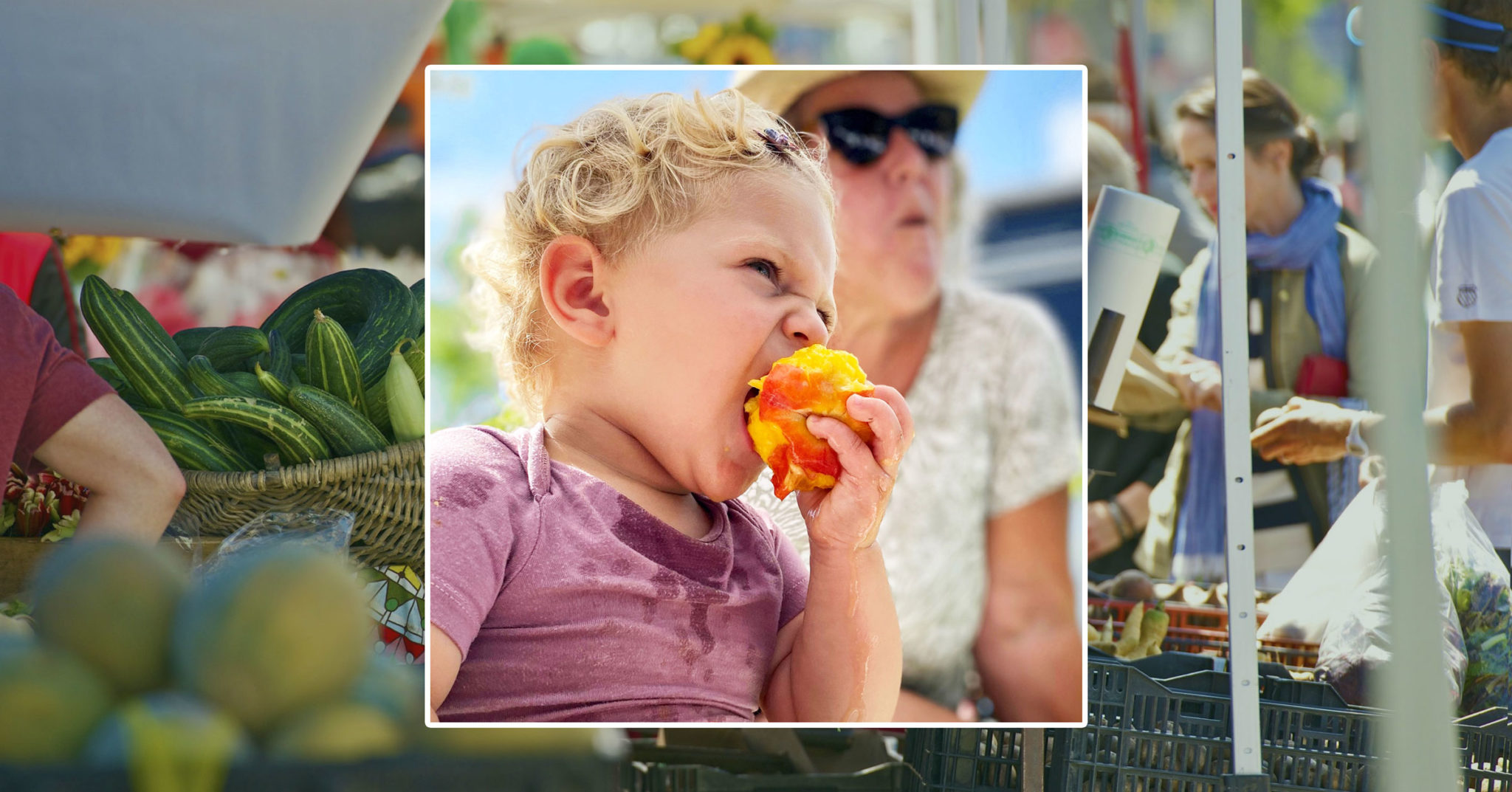
From startup support to food equity, farmers' markets are more than meets the eye
Seasoned shoppers are likely familiar with the allure of farmers’ markets: a sea of popup tents shading prized Palisade peaches and fresh local veggies, one-of-a-kind artisan crafts, and the unbeatable smells of savory dishes and freshly baked treats guaranteed to get even the pickiest eaters racing to the table.
For business owners inside those tents looking out, the scene is just as sweet.
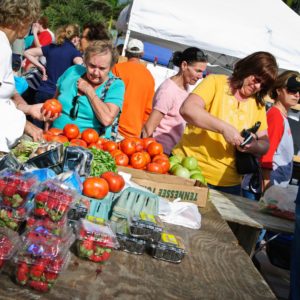
“Every market has a little bit of a different flavor,” said Martha Sullins, a food systems and business management expert with CSU Extension. “But they all have one thing in common: they’re a great place for producers to directly connect with consumers.”
While many online retailers are going further than ever to gather consumers’ digital data, the enterprising vendors at farmers markets have chosen a more organic way to get to know their customers: talking to them.
“The markets not only provide immediate feedback for producers in terms of pricing, quality and supply, but many markets also offer resources designed to support beginning producers,” Sullins said.
“Before vendors start looking at more complex market opportunities, like forming a CSA, selling to restaurants or wholesaling, they can get that direct-to-consumer experience while building commercial connections,” she said.
Extension’s growing role in farmers’ markets
In the 1970s, the Larimer County Farmers’ Market in Fort Collins was started by a group of Colorado Master Gardeners as an outreach activity to give backyard growers who had too much produce an outlet to sell it. Now, the market is fully operated through CSU Extension in Larimer County and has been managed by Extension horticulturalist Allison O’Connor for the past 17 years. Rachel Wildman, a 2020 graduate from CSU, works alongside O’Connor to support the market’s operations.
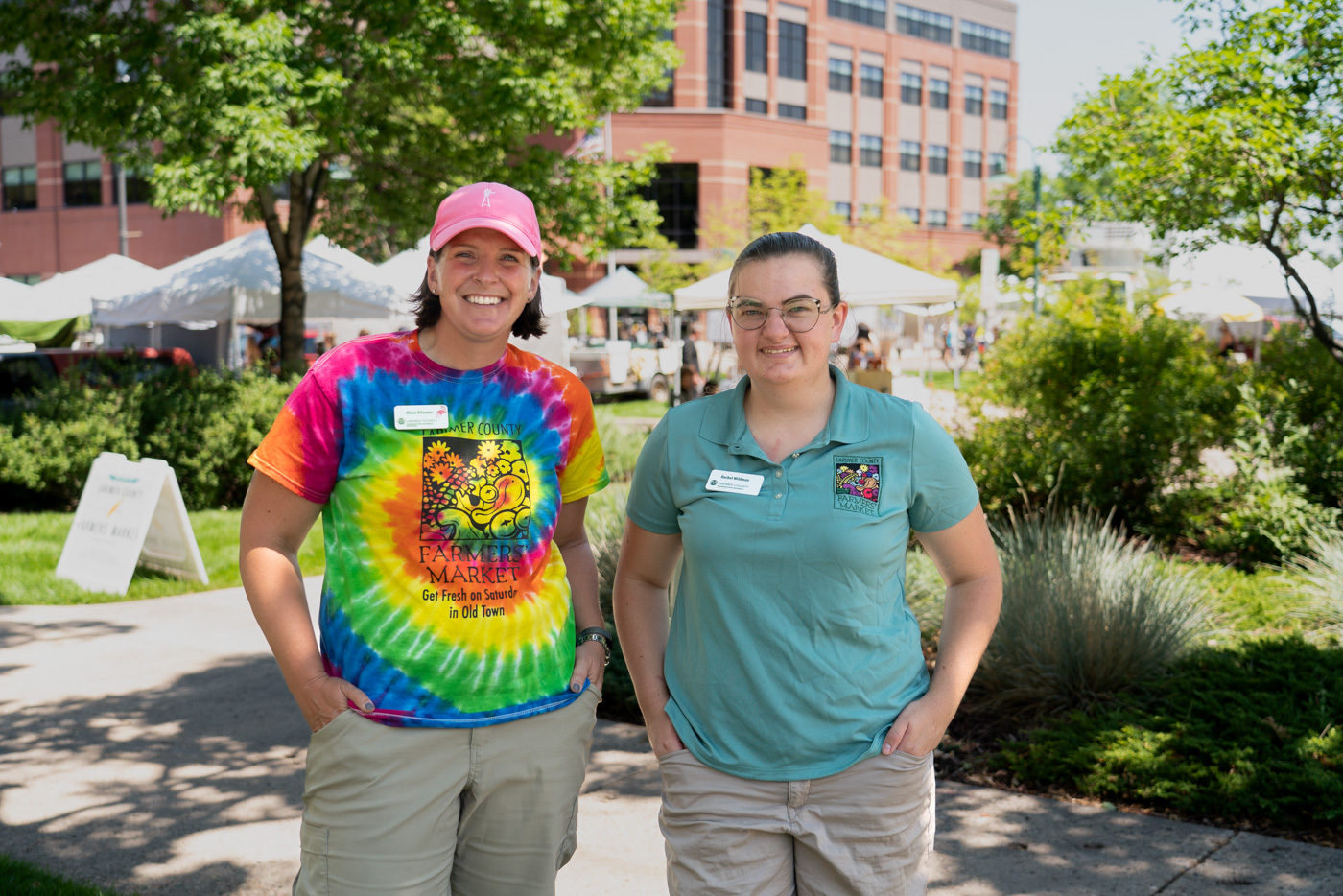
“A farmers’ market exemplifies everything that Extension is already doing. It’s fostering small businesses, it’s using education to incubate ideas and it’s offering communities a place where people can gather and create connections.”
– Alison O’Connor, CSU Extension horticulture expert and Larimer County Farmers’ Market co-manager
When O’Connor first joined Extension, she hadn’t realized how involved her work with the market would be.
“The night before the first market I ever did, back in 2006, I actually had this panic that none of the vendors would show up,” she said.
But they did. And they’ve kept showing up. Back in the early 2000s, the market had 30 to 40 vendors. In the years since, that number has more than tripled, with 140 vendors accepted to the Larimer County Farmer’s Market in 2022.
“In the last 43 years, it’s really morphed into a small business that Extension oversees,” O’Connor said.
The result?
“Last year’s market grossed $1.3 million and we’re on track to top that this year,” O’Connor said.
“A farmers’ market is everything that Extension is already doing,” she said. “It’s fostering small businesses, it’s using education to incubate ideas and it’s offering communities a place where people can gather and create connections.”
Over a decade ago, two of those aspiring small business owners were Katie Slota and Nic Koontz, then business partners and now husband and wife and the founders of Native Hill Farms in north Fort Collins.
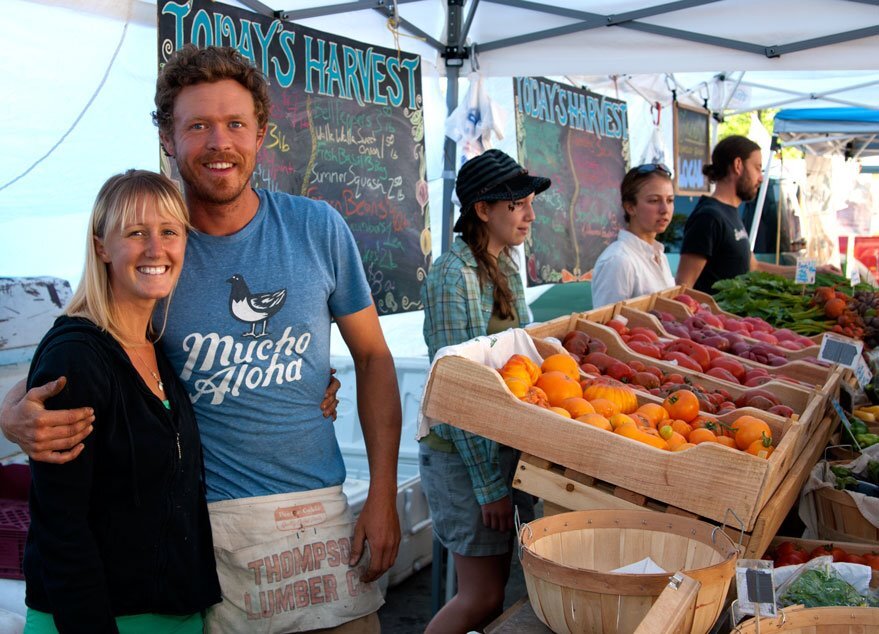
“People really value having small local agriculture in their area. Not only is the food better, but they feel connected to the place and we’ve seen them come together to support our work because of that.”
– Katie Slota, co-founder of Native Hill Farms
At the time, Slota had recently graduated from CSU with an M.S. in environmental health and was focused on finding ways for farms to better support the land and people around them. Koontz had just moved to Colorado after a few years spent farming across the country from South Carolina to Alaska.
“We started working together, but neither of us had any business experience,” Slota said.
So, they decided to enroll in the Colorado Building Farmers Class through CSU Extension, which walks participants through the foundational elements of how to start a successful farm.
“We were able to gain insights from other farmers – which was invaluable –and put together a business plan before we jumped into farming together,” she said. “Starting out, the farmers’ market played a really big role in our business, offering great exposure and helping springboard us into our CSA program.”

From January 17, 2023 through March 7, 2023, Colorado Building Farmers will be offering an online class that covers the principles of business management, developing a marketing plan, managing risk in a farm operation, obtaining financing, and more.
Classes will be held on Tuesdays from 6:00-8:30 pm. This 8-week class culminates in the creation and presentation of a draft business plan to a group of class peers.
Contact the Building Farmers team to learn how to get involved

CSA – or Community-Supported Agriculture – is an agricultural model that enables consumers to support a farm’s operations through the growing season by purchasing ‘shares’ upfront. In return, consumers receive fresh produce or other farm goods on a regular basis – typically weekly or bi-weekly – throughout the harvest season.
“We’re community-supported agriculture,” Slota said. “We rely on community members investing in our farm at the beginning of the season to get things started and – regardless of weather or what happens during that season – they’re in it with us.”
“People really value having small local agriculture in their area. Not only is the food better, but they feel connected to the place and we’ve seen them come together to support our work because of that,” she said.
Like Slota and Koontz, businesses looking to grow their enterprises even further can tap into expertise from Extension professionals across the state who can provide resources like actionable market data and business advice.
Farmers’ markets also provide opportunities for new vendors to network with and learn from seasoned hands, with 20-year veteran sellers sharing tents alongside new vendors. Aspiring business owners and fledgling producers can also tap into Extension expertise through free or low-cost programs and trainings on topics like cottage food production, home food preservation, food safety and nutrition, and more.
To learn more about available resources, contact your local Extension office.
Increasing Access to Healthy Food
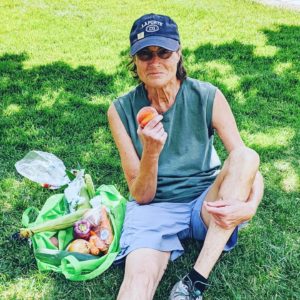
Another goal of many farmers’ markets is to increase community access to healthy, fresh and affordable foods.
Forty markets in Colorado – including the Larimer County Farmers’ Market – take part in programming from Nourish Colorado that allows Supplemental Nutrition Assistance Program (SNAP) participants to receive up to $20 per day in matching funds through Double Up Food Bucks. The program allows people using federal nutrition support to buy eligible products like Colorado-grown fruits and vegetables, meat, dairy, eggs and more. This helps stretch food budgets further and allows participants to buy a wider variety of food.
Four years ago, CSU Extension in Larimer County also launched Market Days! for Older Adults, a program that focuses on supporting the 8% of Larimer County seniors who are food insecure by providing them with free produce from the market.
“Market Days was created with the idea of making the market more inclusive and trying to find a solution for people who are low-income but don’t qualify for SNAP,” said Cheryl Noble, who coordinates the program and serves as a community development coordinator for Larimer County Extension.
Extension began leveraging grants and donations to buy fresh produce from farmers’ market vendors and distribute items to those in need.
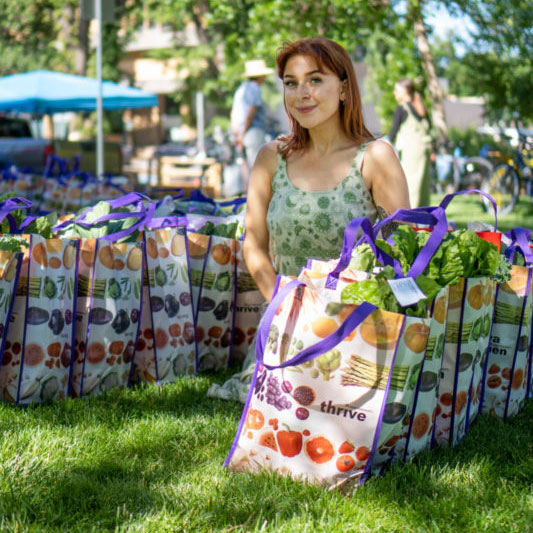
“Nutrition for older adults is about maintenance, prevention, safety, and enjoyment of food.”
– Jesse Whitcomb, CSU nutrition and food science major
Extension partnered with locally based food delivery service NoCo Nosh to better support the growing number of donations going out into the community and to streamline operations, Noble said.
NoCo Nosh is 80% owned by local restaurants, according to company representative Jacqueline Thain, making the goal of supporting local farmers and older adults struggling with food security a natural fit for collaboration.
“We keep all of our business here, our dispatch is here, we hire local drives, our commitment is to keep dollars in the community,” said Thain. “When Cheryl reached out to us it just seemed like a really cool opportunity to help.”
According to Noble, the partnership has had significant benefits for those in need.
“[NoCo Nosh] is working with us on a limited budget to support the program, doing something really beneficial and impactful for the community,” she said. “People are getting home deliveries and being met at the door by a friendly face seeing how they’re doing. “And the food is fresh, straight from the farmer to their doorstep.”
The delivery bags also include information on where people can go for resources, where they can go for help, as well as information on safe food handling, recipes, and ways to get involved with the community. The program distributed more than 1,400 bags of produce to 480 older adults in 2021.
“Last year we reached hundreds of people and the stories we hear are heartwarming and heartbreaking at the same time,” said Alison O’Connor, “We’d love nothing more than to see this effort replicated in other communities.”

To find local farmers’ markets near you, including winter markets, visit: www.coloradoproud.com/farmers-market